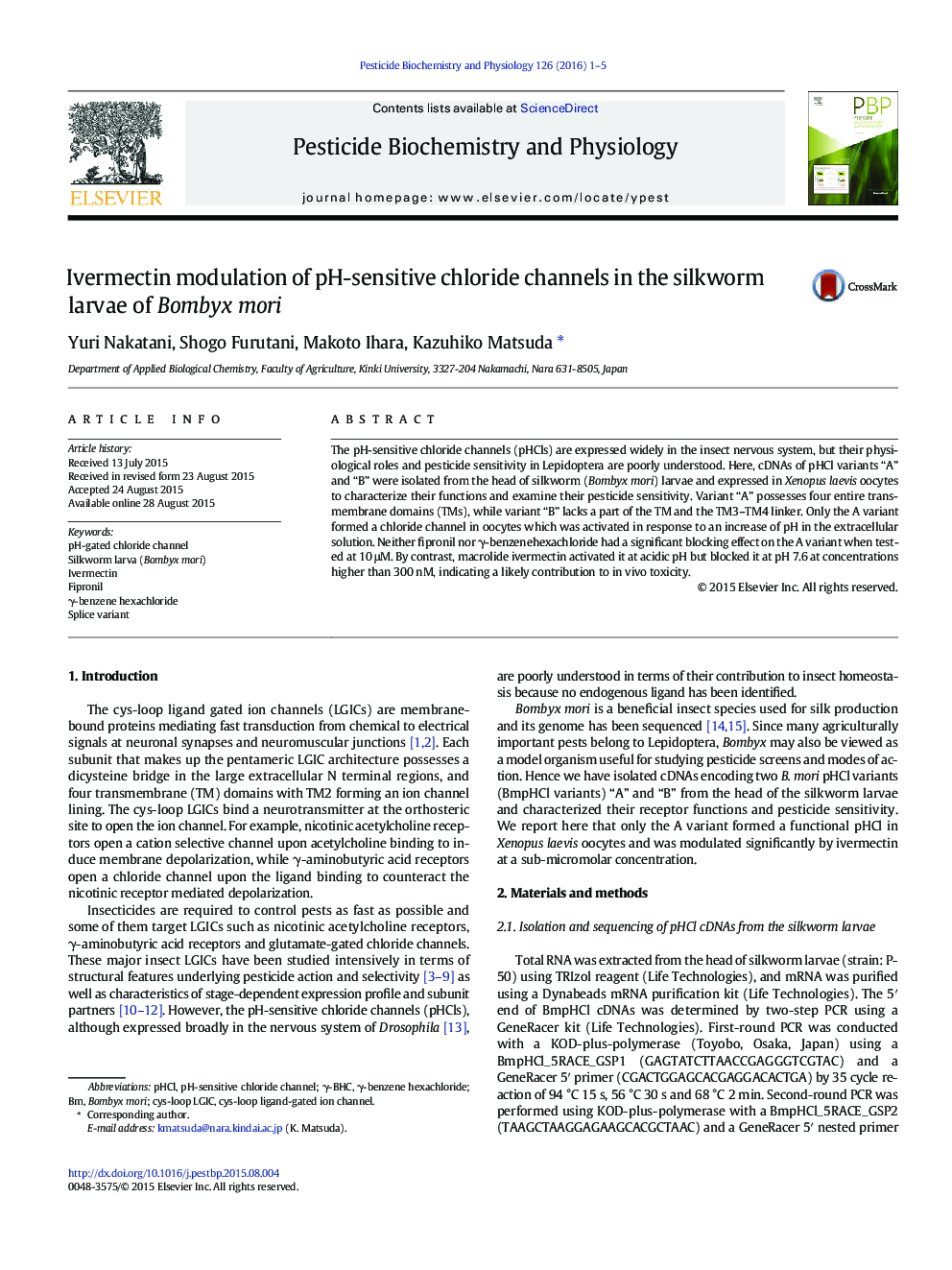| کد مقاله | کد نشریه | سال انتشار | مقاله انگلیسی | نسخه تمام متن |
|---|---|---|---|---|
| 2009070 | 1541773 | 2016 | 5 صفحه PDF | دانلود رایگان |

• Two variant cDNAs “A” and “B” were isolated as those encoding putative pH-sensitive chloride channels from the head of the silkworm larvae.
• The Bombyx pHCl A variant formed a pHCl while the B variant lacking a part of the transmembrane domain did not when expressed in Xenopus oocytes.
• The pHCl A variant response was increased with pH shift from 6.0 with pH50, a pH giving half the maximum response, of 7.6.
• Ivermectin below 1 μM activated the pHCl A variant at acidic pH but blocked it at basic pH, providing a new insight into the mode of action.
The pH-sensitive chloride channels (pHCls) are expressed widely in the insect nervous system, but their physiological roles and pesticide sensitivity in Lepidoptera are poorly understood. Here, cDNAs of pHCl variants “A” and “B” were isolated from the head of silkworm (Bombyx mori) larvae and expressed in Xenopus laevis oocytes to characterize their functions and examine their pesticide sensitivity. Variant “A” possesses four entire transmembrane domains (TMs), while variant “B” lacks a part of the TM and the TM3–TM4 linker. Only the A variant formed a chloride channel in oocytes which was activated in response to an increase of pH in the extracellular solution. Neither fipronil nor γ-benzenehexachloride had a significant blocking effect on the A variant when tested at 10 μM. By contrast, macrolide ivermectin activated it at acidic pH but blocked it at pH 7.6 at concentrations higher than 300 nM, indicating a likely contribution to in vivo toxicity.
Figure optionsDownload as PowerPoint slide
Journal: Pesticide Biochemistry and Physiology - Volume 126, January 2016, Pages 1–5